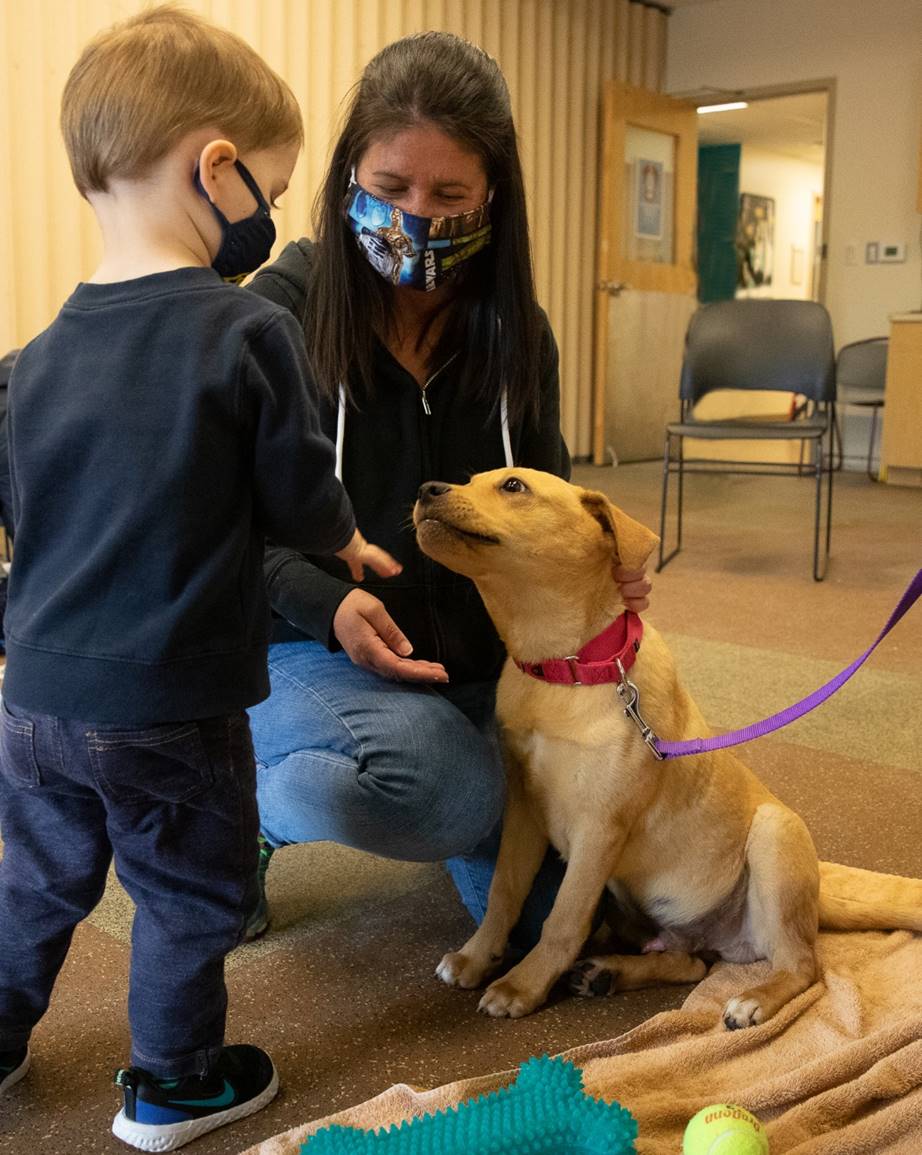Animals welcome local children on the Autism Spectrum

Story Time at the Humane Society of Huron Valley (HSHV) just got warmer and fuzzier.
Submitted by the Humane Society of Huron Valley
“We’ve offered our Little Paws Story Time for several years, but we know some children struggle with sitting still for longer stories, or feel overwhelmed by bright lights or crowded spaces,” says Jessie Hitt, HSHV’s Humane Education Manager. “So we’ve started ‘Sensory Story Time’ to offer a welcoming space for neurodivergent and autistic children and their families.”
Sensory Story Time recently launched on select Tuesday mornings at HSHV. It includes stories, fingerplays, and personal interactions with the adoptable animals — along with modifications like low lighting, ample space for freedom of movement and multi-sensory play activities. The program is designed for tots age 2 to 5 years, but all ages of youth are welcomed.
Although essentially like Little Paws Story Time, Sensory Story Time is specifically intended as a welcoming space for neurodivergent and autistic children. Modifications specific to Sensory Story Time include low lighting, ample space for freedom of movement and multi-sensory play activities. The program is offered at HSHV’s Education Center at 3100 Cherry Hill Rd, Ann Arbor, MI 48105.
Sensory Story Time is offered one Tuesday every month for 60 minutes. To keep distractions to a minimum for our young learners, doors will close at 10:45 am. Families arriving after that will be asked to wait in the vestibule until our doors open to the public at 11 am. A fee of $5 per child is requested; up to two adults/children under the age of 1 are admitted for free. Pre-registration is required to allow for social distancing. There is a limit of eight children and one adult caregiver per child.
“We don’t want anyone to feel discouraged from participating in story time because they were worried their child may not ‘fit in,’” says Hitt. “There’s room for everyone who loves animals here, and the unconditionally-loving animals wholeheartedly agree.”
Research shows that youth with autism spectrum disorder (ASD) benefit from interactions with animals. A study published by the National Institute for Health showed children with ASD talked more, looked at others’ faces more, and demonstrated increased prosocial behaviors like smiling and laughing more when in the presence of animals.
Find out more about Sensory Story Time and sign up at hshv.org/storytime.






You must be logged in to post a comment Login